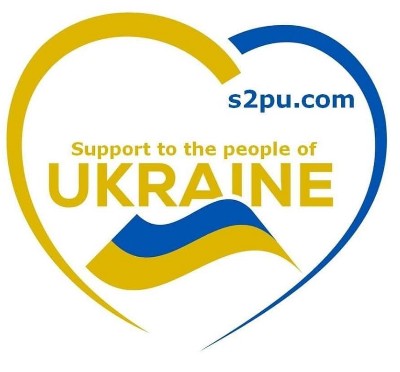Lawmakers in the German parliament Wednesday approved with a large majority the joint resolution by the three parties in the coalition government — the Social Democrats, liberal Free Democrats and Greens — with the center-right CDU/CSU opposition group, calling the Holodomor a “crime against humanity.”

The Bundestag also decided to further support the remembrance of Holodomor victims and international awareness of the famine, while establishing a clear link to Russian President Vladimir Putin’s ongoing war on Ukraine.
The definition of the crime of genocide as contained in Article II of the Genocide Convention was the result of a negotiating process and reflects the compromise reached among United Nations Member States in 1948 at the time of drafting the Convention.
Ukrainian Foreign Minister Dmytro Kuleba noted that...
Germany's recognition of the Holodomor as the genocide of the Ukrainian people is not just a historical decision.
"This is an event that we have been told for years: it will never happen. Simply because it won't. But the principle of President Zelensky's foreign policy is that nothing is impossible," he noted.
Kuleba said it restores historical justice and honors the millions of victims of the genocide that "Stalin and his henchmen committed against our people."
"The world could not stop this crime then, but can at least stop the Russian lies about it now and call it what it was: genocide," the minister added.
 German Bundestag (Parliament) approved a resolution describing the so-called Holodomor - the mass starvation in the USSR in the early 1930s - as genocide. The document was prepared and put up for discussion by fractions of both the ruling parties in Germany (Social Democratic Party of Germany, "Greens" and Free Democrats) and the opposition conservative bloc CDU/CSU. The meeting was broadcast Wednesday on the website of the German parliament.
German Bundestag (Parliament) approved a resolution describing the so-called Holodomor - the mass starvation in the USSR in the early 1930s - as genocide. The document was prepared and put up for discussion by fractions of both the ruling parties in Germany (Social Democratic Party of Germany, "Greens" and Free Democrats) and the opposition conservative bloc CDU/CSU. The meeting was broadcast Wednesday on the website of the German parliament.
Deputies from the above political forces voted for the resolution. Parliamentarians from the factions of the Left Party and Alternative for Germany abstained.
The document said that the entire Ukraine suffered from hunger and repressions, and not only the regions that produced grain. "Thus, from today's perspective, the historical and political designation [of those events] as genocide is called for. The German Bundestag shares the view on such a classification," the resolution reads.
Germany has become the 19th country to recognize the Holodomor of 1932-1933 as a genocide against the Ukrainian people. According to the Ukrainian Ministry of Foreign Affairs, this decision was supported by all the democratic factions of the German parliament - the Social Democrats, the Free Democrats, the Greens and the CDU/CSU.
Genocide is defined in the same terms as in the Genocide Convention in the Rome Statute of the International Criminal Court (Article 6), as well as in the statutes of other international and hybrid jurisdictions. Many States have also criminalized genocide in their domestic law; others have yet to do so.
Only days after the 90th anniversary of Ukraine's 1930s "Holodomor", Germany's parliament has approved a resolution recognizing the famine as "genocide".
According to the resolution brought to the Bundestag by the three parties in Chancellor Olaf Scholz's governing coalition and the main opposition bloc, "the mass deaths from hunger were not a result of failed harvests; the political leadership of the Soviet Union under Josef Stalin was responsible for them."
The resolution also states that all things Ukrainian were "deeply suspect" to Stalin and notes that "the whole of Ukraine was affected by hunger and repression, not just its grain-producing areas."
While many academics are divided over whether the famine should be classified as genocide -- the deliberate annihilation of a people, be they an ethnic, national, racial, or religious group -- the resolution passed by the German parliament says that "from today's perspective, a historical and political classification as genocide is obvious."
"This horror had its cause in the Kremlin -- there, the dictator took the cruel decision to push through collectivization by force and cause hunger," Green party lawmaker Robin Wagener told parliament.
"And the killing by hunger also had as its aim the political repression of Ukrainian national identity, Ukrainian culture, and language."

Comments powered by CComment